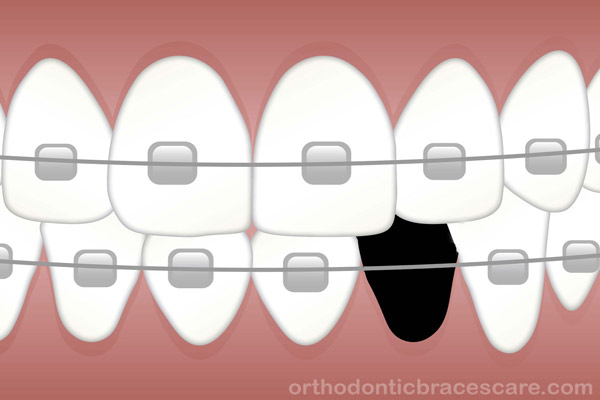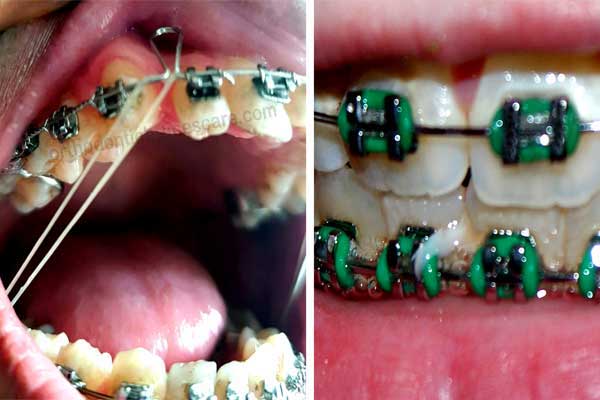Ever felt that sharp zing shoot through your tooth the moment you sipped an iced latte or took a bite of warm apple pie? Yep, that’s tooth sensitivity for you—like an uninvited guest that shows up every time you want to enjoy your favorite foods. Been there, done that, and honestly, it’s no fun.
Sensitive teeth are way more common than you might think. The good news? You don’t have to suffer in silence or give up your beloved coffee (thank goodness).
I’ve rounded up 10 super-easy home remedies that can actually help soothe that sting and protect your teeth over time.
Most of these tricks come straight from dental pros—plus a few I’ve personally tried (and survived!) as a dentist and a fellow coffee addict.
Let’s break down what’s going on with your teeth first—because knowing the why makes treating it way easier.
What Causes Tooth Sensitivity?
Before we dive into the remedies, it’s worth understanding why your teeth are acting up in the first place. No one likes surprise pain—so let’s expose the culprits.
Common Triggers
- Cold & hot foods/drinks: Ice-cold water, hot tea, and even soups can set off the pain.
- Sweet & acidic treats: Citrus fruits, sodas, and even candy sneakily attack your enamel.
- Overzealous brushing: Brushing too hard can thin enamel and irritate gums.
Underlying Issues
- Worn enamel: Once it thins out, the inner layer (dentin) gets exposed and zings like crazy.
- Receding gums: Often caused by gum disease or harsh brushing, exposing sensitive roots.
- Tooth decay or cracks: These let temperature changes sneak into the nerve.
Pro tip: If you notice sharp pain that lingers or spreads, it’s always smart to check in with your dentist ASAP. DIY fixes are great for mild sensitivity, but they’re not miracle workers for serious dental issues.
10 Easy Home Remedies for Sensitive Teeth Relief
Ready for the good stuff? Here’s the lineup of home remedies that actually make a difference—and yes, they’re simple enough to fit into your daily routine.
1. Switch to a Desensitizing Toothpaste
If you haven’t tried one yet, you’re missing out on a small miracle in a tube. These toothpastes block pain signals from reaching the nerve.
- How to use: Brush twice a day, just like your regular toothpaste.
- When to expect results: Usually in 2–4 weeks, so be patient.
My take: This was the first thing I recommended to most of my sensitive-tooth patients. It’s easy, inexpensive, and often all you need.
2. Rinse with Warm Saltwater
An old-school remedy that still works wonders. Saltwater is naturally antibacterial and helps calm irritated gums.
- DIY recipe: Dissolve ½ teaspoon of salt in a cup of warm water.
- Swish for about 30 seconds, then spit it out—don’t swallow.
- Repeat twice a day for best results.
Why it works: It reduces inflammation and flushes out bacteria hanging around your teeth and gums.
3. Try a Fluoride Mouth Rinse at Home
Fluoride is your enamel’s best friend. It strengthens weak spots and makes your teeth more resistant to temperature shocks.
- Look for over-the-counter fluoride rinses at your local pharmacy.
- Use it once daily at night after brushing (don’t rinse with water afterward).
Pro tip: Avoid rinsing or eating for at least 30 minutes so the fluoride can do its magic.
4. Coconut Oil Pulling
Yes, it’s an age-old Ayurvedic remedy that’s still trending for good reason. Coconut oil has antimicrobial properties that can help with gum health and reduce bacteria.
- How to do it: Take 1 tablespoon of coconut oil, swish it around your mouth gently for 5–10 minutes, and spit it out.
- Rinse with warm water and brush afterward.
Note: Start slow—maybe 3–4 times a week. Your jaw doesn’t need a workout.
5. Avoid Acidic Foods & Drinks
If you’re guzzling citrus juice or sodas all day, your enamel is basically under attack 24/7.
- Cut back on lemons, limes, pickles, carbonated drinks, and sports drinks.
- Rinse your mouth with water after having anything acidic.
- Avoid brushing right after acidic meals—wait 30 minutes to protect your enamel.
Friendly reminder: You don’t have to quit them all—just limit and rinse. Your teeth will thank you.
6. Use a Soft-Bristled Toothbrush
This might sound too simple to be true, but switching your toothbrush can make a world of difference.
- Choose soft or ultra-soft bristles to prevent further enamel wear and gum recession.
- Go gentle—think massage, not scrub.
FYI: Hard-bristled brushes + heavy-handed brushing = recipe for sensitivity disaster.
7. Try a Warm Honey-Water Rinse
Who knew something so sweet could be so soothing? Honey is naturally antibacterial and can calm irritated gums.
- Mix 1 teaspoon of raw honey with a cup of warm water.
- Swish it gently for a minute, then spit out.
Bonus: It actually tastes pleasant compared to saltwater.
8. Clove Oil Dab for Instant Relief
Clove oil is a natural numbing agent—it’s like nature’s tiny anesthetic.
- Dip a clean cotton swab in a drop of clove oil diluted with a few drops of carrier oil (like olive oil).
- Dab it on the sensitive spot.
- Leave it for a few minutes, then rinse with warm water.
Caution: Don’t overdo it; clove oil is potent and can irritate gums if used too much.
9. Limit Teeth Whitening Products at Home
I get it—we all want that sparkling smile. But over-whitening strips and gels often irritate enamel and gums.
- Scale back on whitening treatments if your teeth feel more sensitive.
- Stick to a gentle whitening toothpaste instead.
IMO: White teeth are great, but pain-free teeth are priceless.
10. Apply a Cold Compress for Throbbing Pain
When your tooth suddenly feels like it’s throbbing, an ice-cold compress can be a quick lifesaver.
- Wrap a few ice cubes in a clean cloth and hold it gently against your cheek near the sore spot for 10–15 minutes.
- Repeat a few times a day as needed.
Heads-up: Don’t apply ice directly on the tooth—it’ll just make things worse.
Bonus Tips to Prevent Future Sensitivity
A few small tweaks to your routine can help keep sensitivity at bay long-term:
- Brush gently in small circular motions—no need to scrub.
- Floss daily to remove plaque that brushing misses.
- Avoid brushing immediately after acidic foods.
- Drink plenty of water to keep saliva flowing (saliva helps protect your teeth).
- See your dentist twice a year for check-ups and cleanings.
When to See a Dentist Instead of DIY
Not all sensitivity can be fixed at home. If you notice any of these red flags, don’t wait:
- Sharp pain that lasts more than a few seconds after triggers
- Sensitivity that gets worse over weeks instead of better
- Swollen gums or visible holes/cracks in your teeth
- Pain that interferes with eating, sleeping, or speaking
Bottom line: Home remedies are great for mild discomfort, but persistent pain could mean cavities, exposed roots, or even infection—so let a pro take a look.
FAQs About Sensitive Teeth
Q1: Can home remedies permanently cure sensitivity?
Not really. They help manage symptoms and protect your enamel, but the underlying cause (like enamel wear or gum recession) often needs professional care.
Q2: How long should I try these remedies before visiting a dentist?
Give it 2–3 weeks. If there’s no improvement, book an appointment.
Q3: Are natural remedies safe for kids or braces wearers?
Most (like saltwater rinse and soft toothbrush) are safe. Avoid clove oil or strong whitening products for kids unless advised by a dentist.
Conclusion
Tooth sensitivity doesn’t have to ruin your relationship with ice-cream cones or morning coffee. With these 10 easy home remedies, you can soothe the sting, protect your enamel, and enjoy your favorite foods without that shocking jolt of pain.
Remember, consistency is key—don’t expect overnight miracles. If symptoms linger, don’t tough it out; reach out to your dentist. After all, life’s too short to wince every time you smile, sip, or snack.

Dr. Pallab Kishore, MS in Orthodontics and owner of Orthodontic Braces Care, shares expert tips on braces, aligners, and oral health from 10+ years of experience.


